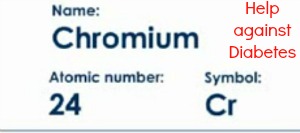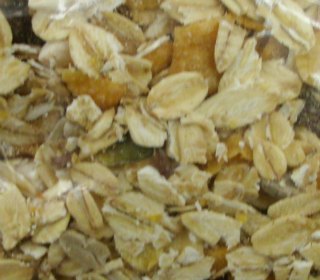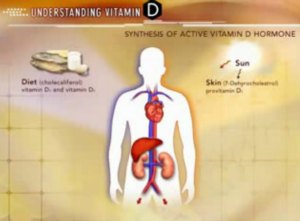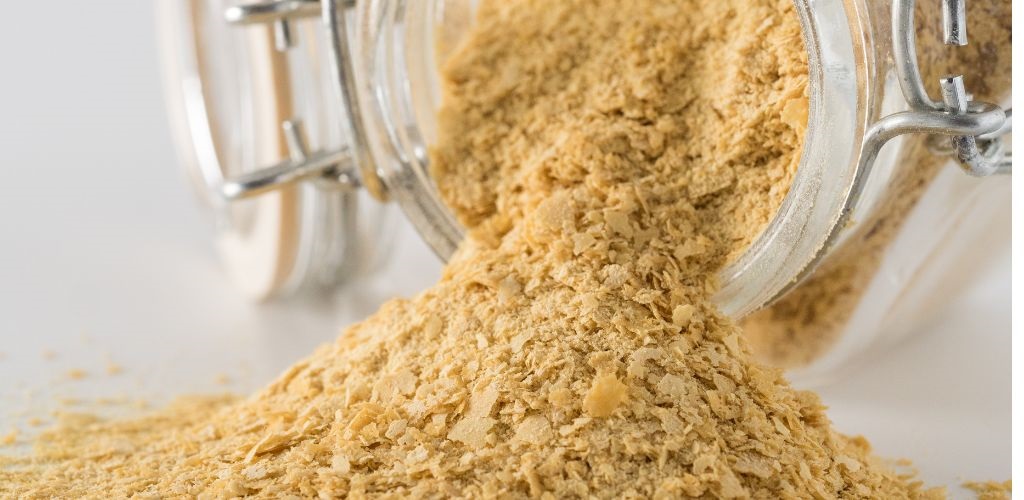Effects Of Diabetes Chromium Remedy
- Home
- Natural Remedies
- Chromium Picolinate Remedy For Diabetes
Chromium is a mineral that is commonly found in small amounts in the diet. It plays a role in various metabolic processes in the body, including carbohydrate, fat, and protein metabolism. There is some evidence to suggest that chromium supplementation may have a modest effect on blood sugar levels.
It's important to note that the evidence regarding the sugar-lowering effects of chromium is not conclusive, and more research is needed to establish its effectiveness. Additionally, the effects, if present, are generally modest and may vary among individuals.
Does chromium have sugar-lowering effect? How to use chromium picolinate for weight loss?
Now, let's begin to give an answer to all your concerns.
How can chromium affect your diabetes?
Chromium is believed to have several potential effects on diabetes, although the exact mechanisms are not fully understood. Here are some ways in which chromium may affect diabetes:
1. Insulin Sensitivity: Chromium is thought to enhance the action of insulin, a hormone that helps regulate blood sugar levels. It may improve insulin sensitivity, allowing the body to use insulin more effectively.
It can help your body to break down fats and proteins and help also in the utilization of sugars produced by the breakdown of certain sugary foods. Chromium serves as the starting point, allowing insulin to attach to specific receptors in the body cells. Also, it improves the transport of glucose inside of the cells.
2. Glucose Metabolism: Chromium may play a role in carbohydrate metabolism by helping to regulate blood sugar levels. It may enhance the uptake of glucose into cells, potentially leading to better control of blood sugar.
3. Lipid Metabolism: Some studies suggest that chromium supplementation may have a beneficial effect on lipid metabolism. It may help lower levels of total cholesterol, LDL cholesterol (the "bad" cholesterol), and triglycerides while increasing HDL cholesterol (the "good" cholesterol).
4. Weight Management: There is some evidence to suggest that chromium supplementation could have a modest effect on weight loss or weight management. Maintaining a healthy weight is important for managing diabetes, as excess weight can contribute to insulin resistance.
What is chromium in fact?

Chromium is a chemical element with the symbol Cr and atomic number 24. Chromium is a trace mineral vital for your body.
It is a hard, lustrous, steel-gray metal that belongs to the transition metals group on the periodic table. Chromium is found naturally in various minerals, such as chromite, and is primarily obtained through mining and extraction processes.
Chromium has several important industrial uses, including the production of stainless steel, chromates, and pigments. Stainless steel, which contains chromium as a key component, is highly resistant to corrosion and widely used in construction, automotive, and manufacturing industries.
In addition to its industrial applications, chromium is also an essential trace mineral for human health. It is involved in various metabolic processes and plays a role in carbohydrate, fat, and protein metabolism.
Chromium is believed to enhance the action of insulin, a hormone that regulates blood sugar levels, and may have potential effects on glucose metabolism and insulin sensitivity.
Explore more vitamins And Minerals.
How can you benefit you from Diabetes Chromium link?
The potential benefits of the chromium-diabetes link are mainly associated with its effects on blood sugar control and insulin sensitivity. Here are some ways in which chromium supplementation may potentially benefit individuals with diabetes:
- Improved Blood Sugar Control: Chromium has been suggested to help regulate blood sugar levels by enhancing the action of insulin. It may improve glucose metabolism and promote the uptake of glucose into cells, leading to better control of blood sugar levels.
- Enhanced Insulin Sensitivity: Chromium supplementation has been reported to improve insulin sensitivity in some studies. Increased insulin sensitivity means that the body can use insulin more effectively, resulting in better management of blood sugar levels.
- Reduced Insulin Resistance: Insulin resistance is a key feature of type 2 diabetes, where cells become less responsive to the effects of insulin. Chromium may help reduce insulin resistance, potentially leading to improved glucose control.
- Potential Cardiovascular Benefits: Some studies have suggested that chromium supplementation may have positive effects on lipid metabolism, including lowering total cholesterol, LDL cholesterol, and triglyceride levels while increasing HDL cholesterol. These effects may contribute to better cardiovascular health, which is particularly important for individuals with diabetes who are at higher risk of heart disease.
It's important to note that the effects of chromium supplementation on diabetes are generally modest and may vary among individuals.
Furthermore, it's crucial to approach chromium as part of an overall diabetes management plan, which includes a balanced diet, regular exercise, appropriate medication or insulin therapy as prescribed by a healthcare professional, and regular monitoring of blood sugar levels.
Where can you find chromium?
Chromium is found in small amounts in some foods, such as broccoli, potatoes, whole grains, and meats. However, the typical diet may not provide sufficient amounts of chromium for optimal health, leading to the use of chromium supplements in some cases.
It's important to note that while chromium is essential for human health, excessive intake of chromium supplements can have adverse effects.
1. Brewer's Yeast
It is the best source of chromium, selenium and vitamins B. As you can see, all these vitamins and minerals are so useful for diabetics.
Brewer's yeast is a type of yeast that is derived from the brewing process of beer production. It is a byproduct of beer-making and is often available in the form of flakes or powder.
Do not confound brewer's yeast with baking or other common yeasts, because they are not the same and do not contain the same nutrients as brewer's yeast.
When considering brewer's yeast as a source of chromium, it's important to note that it has a distinctive taste that may not be appealing to everyone.
Some people enjoy incorporating brewer's yeast into their diet by adding it to smoothies, sprinkling it over foods, or using it in recipes such as baked goods or sauces.
If you are considering using brewer's yeast as a source of chromium, it's advisable to choose a reputable brand and follow the recommended serving size.
2. Meat and Fish:
Some animal-based foods contain chromium. Examples include lean meats like beef, chicken, and turkey, as well as certain types of fish like mussels and clams.
For individuals with diabetes who may also have cholesterol concerns, incorporating lean red meat into their diet twice a week can be beneficial.
It is important to choose lean cuts of meat to minimize saturated fat intake.
This approach allows for the consumption of essential nutrients found in red meat while being mindful of overall cholesterol levels.
3. Broccoli

Broccoli is indeed a food that contains chromium. It is considered a good dietary source of chromium, along with other nutrients.
While the exact amount of chromium can vary depending on factors such as growing conditions and soil content, broccoli is generally recognized as a source of this mineral.
Including broccoli in your diet can provide you with various health benefits due to its nutrient profile, including fiber, vitamins (such as vitamin C and vitamin K), and minerals (including chromium). It is also low in calories, making it a nutritious addition to meals.
However, it's important to note that the chromium content in broccoli is relatively modest compared to other potential sources like whole grains and nuts. To ensure an adequate intake of chromium, it's advisable to have a varied diet that incorporates multiple food sources.
5. Whole grains

Whole grains, such as whole wheat, oats, brown rice, and quinoa, can be good sources of chromium. The chromium content in whole grains can vary depending on factors like the specific grain, growing conditions, and processing methods.
The outer bran and germ layers of whole grains are particularly rich in nutrients, including chromium. When grains are refined to produce white flour or processed grains, these outer layers are often removed, resulting in a loss of chromium and other beneficial components.
Including a variety of whole grains in your diet can contribute to your overall intake of chromium and other essential nutrients. It's worth noting that the chromium content in whole grains may be relatively small compared to some other food sources. However, whole grains provide many other health benefits, including dietary fiber, vitamins, minerals, and antioxidants.
To maximize the nutritional value and chromium content of whole grains, opt for whole grain products like whole wheat bread, whole grain cereals, and brown rice instead of their refined counterparts.
|
4. Eggs Apart being a good source of chromium, eggs are rich in proteins (white part), vitamins A + D (yolk part). However, the high content in cholesterol and saturated fats of the yolk part has made the medical team to think twice before advising eggs. Preferably, twice or three times a week can eat whole egg. If you like to eat more, please choose the white part although not that tasty. |
|
Whole grain breads and cereals are considered also a good source of chromium. In addition, they are a good source of vitamins, folate and fiber. |
|
6. Green peppers Besides being high in chromium, green peppers are rich in vitamin C, magnesium, vitamin A, potassium and fiber. They are also low in carbohydrates and fats. |
|
7. Apples In addition to good content in chromium, apples are a natural source of healthy carbohydrates, fiber, calcium, potassium, vitamin A and C. There are some varieties of apples (like golden) that do not contain vitamin c or other elements. |
|
8. Bananas Although it is a good source of chromium, and excellent source of potassium, magnesium and vitamin A, bananas are high in carbohydrates. Therefore, diabetics are recommended to be careful when deciding to eat bananas. 1 small banana, or few slices twice or three times weekly won't cause you problems. |
 |
Other good sources include broccoli, mushroom, beans, lentils, spinach and dairy products.
As you may see, most of these foods are also the right food to choose when you’re diabetic rather than serving as good sources of chromium.
- There is another way to have chromium naturally too. I’m talking about the supplemental chromium you can take from the scientific proven supplements.
Mostly the right daily dose to take is 150 micrograms. Do not try higher doses, especially higher than 1000 micrograms a day. If you have to, you need to check the function of your kidneys and watch rash if you exceed.
You can find chromium in supplements commonly as: chromium picolinate, chromium polynicotinate, chromium chloride, chromium-enriched brewer’s yeast.
Remember: Chromium alone cannot help you much in controlling diabetes. Following the right lifestyle and dietary changes together with herbs and vitamins and minerals can assure a maximum control apart diabetes chromium remedy.
Written by Dr.Albana Greca Sejdini, Md, MMedSc
Medically reviewed by Dr.Ruden Cakoni, MD, Endocrinologist
Diabetes complications Questions or Problems? Get Help Here
This is the place where you can ask a question about any aspect of diabetes complications.
It's free and it's easy to do. Just fill in the form below, then click on "Submit Your Question".










